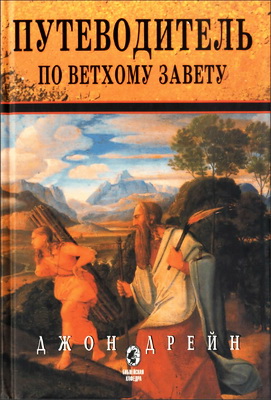
Richardson - Bowden - The Westminster Dictionary of Christian Theology
Alan Richardson and John Stephen Bowden - The Westminster Dictionary of Christian Theology
Philadelphia: The Westminster Press, 1983. – 614 p.
ISBN 0-664-21398-7
The first edition of A Dictionary of Christian Theology was published, after a long period of gestation, in 1969. Since then it proved its usefulness by being reprinted regularly, and has become a familiar reference book to a wide international audience. However, a decade and more is a long time, even in theology, and with the very different climate of the 1980s it seemed time for a thorough revision of its contents. This revised edition, The Westminster Dictionary of Christian Theology, has therefore been reworked from beginning to end, and while its relationship and indebtedness to its predecessor will be obvious, it is in fact a completely new--and rather different--work, which marks one further step forward in what at best can be the most fascinating of all disciplines.
All readers owe a great debt of gratitude to the Editor of the original Dictionary, Alan Richardson. Without his unsparing effort it would never have seen the light of day, and he made an enormous personal contribution to its contents. While there always were, and always will be, those with very different views from his own, no one can question his great gift of seeing the important questions of the time and attempting to answer them in terms which were never those of introverted theological jargon. The Dictionary was very much his child: he gathered together a relatively small group of faithful contributors to bring it to birth, and when others who had been asked for articles on particular subjects failed him, as many did, he sat down and produced the relevant entry himself.
The words with which he introduced the work still bear repeating:
Theology is a subject of immensely wide range. It is bound up with the long history of ideas, especially those of Western civilization, upon which it has exercised a powerful influence. In this new age of rapid world-wide communication these ideas are disseminated to every part of the globe, and they have not remained unaffected in the process. The roots of Christian theology lie deep in the civilizations of the ancient world, particularly those of Israel and Greece. Since the days of the early church the Christian proclamation has engaged in dialogue with non-Christian ways of thinking, and Christian theologians have constantly been driven to define their standpoint either in terms of or in opposition to the philosophical presuppositions of their environment. Especially is this true since the days of the Enlightenment (c. 1650-1780), when new forms of secular and non-religious thinking about man and the universe were developed. Today it is patently true that theology is being done in dialogue with or sometimes in reaction from the various modes of philosophical and scientific thinking which prevail in our time. It is with the theological issues of today that this Dictionary is primarily concerned.
A Dictionary of Christian Theology, though, was inevitably a product of its time, and looking back we can see how some of its concerns were retrospective and obsolescent: the aftermath of a biblical theological movement whose weakness had already become evident; the last stages of the domination of a German theology represented by Barth, Bultmann and others which has since proved to have less and less to offer; and a preoccupation with the notion of a 'secular Christianity' all too parasitic on a brief period of unparalleled prosperity and irresponsibility in the Western world. If these characteristics dated it, so too did the lack of coverage in areas where more recent readers would expect entries. Far-sighted though he was, Alan Richardson could not transcend his time and its concerns. As the passage from his introduction shows, he understood 'non-Christian ways of thinking' in terms of post-Enlightenment philosophies rather than other religious traditions; pluralism in a multi-cultural society was barely touched on; political theology had yet to become a significant theme; doctrinal criticism, the application to Christian doctrine of the kind of historical criticism which had long been directed towards the Bible, was virtually unknown; and there were some strange blind spots: there was not even a cross-reference, for example, to 'Incarnation'! Minimal attention was paid to the psychology and sociology of religion, and although an attempt was made to produce as ecumenical a work as possible, Roman Catholic and Orthodox contributions were almost completely absent. Lastly, and sadly not least, there were places where articles tended to turn into sermons, thus giving the entries a rather odd parochial air.
Alan Richardson would certainly have disapproved of a good deal of what has gone into this revised dictionary, but were he still alive I hope that he would recognize the spirit behind the revision. It is a tribute to his judgment that few of the original entries have been abandoned altogether, and that many of the new ones are simply the result of circumstances he could not have foreseen. Positively, the main difference in the new work is the greatly extended coverage of virtually all the subject matter in the light of the growth in our knowledge and concerns; above all, the focus is on theological thinking against a historical background rather than on historical events or figures. For the revision, this has had one negative consequence: biographical entries have been dropped altogether (though there is an index of names of important theological figures). Whom to include and whom to omit is always a problem, and to be generous all round while adding the new theological treatment called for would have made the new volume impossibly large and expensive; as it is, it is almost half as long again as its predecessor. Readers are therefore referred in this respect either to other reference works or to a companion volume, Who's Who in Theology, currently in preparation, which provides concentrated information about individuals who have contributed to the development of theology and the main works by and about them.
For the production of what now in fact amounts to virtually a new work (even those articles from the original which have been retained have been worked over and updated), we have drawn on a very much wider range of contributors, not only from England and the United States but from Europe and the British Commonwealth. Given the many different perspectives of those whose articles have been brought together here, it is remarkable that taken as a whole this revised dictionary presents, in its own way, quite a coherent picture. At a time when interest is reviving strongly in the theological content of religious belief and the polarization between over-traditional and over-radical views, so characteristic of the 1960s, has given way to a concern for new patterns of Christian belief which do not abandon the wealth of past tradition but express it in a way which takes more account of the modern world, readers will find here a guide book, a map which they can use for their explorations, a collection of wise judgments by which they can test new proposals.
* * *
Fall, The
The presumed historical accounting for mankind's actual condition of sinfulness and inadequacies and frustrations in life (see Original Sin). Gen. 3 tells a story of the first man and woman of the human race who, through their disobedience to a divine command, forfeited a paradisiacal and ideal existence in which they had first been constituted by their Creator and were reduced to the actual human estate with all its physical and social shortcomings. This is a use of ancient myth by the Yahwistic author of the Genesis traditions, who was much concerned with the aetiology * of the human situation and institutions. In Ezek. 28 essentially the same myth appears: here the theme of the decline of primordial man has been applied to the king of Tyre (i.e., the great mercantile kingdom of Phoenicia) to illustrate 'how have the mighty fallen'.
The Genesis myth accounting for the existing human condition is not taken up elsewhere in the Hebrew Bible, though there are obvious references to it in Ecclus. 25.24 and Wisdom 2.23f. (in which latter text the 'serpent' of Genesis has clearly been identified with 'the devil'). Rom. 5.12-21, on the contrary, has obviously made use of it in pairing off the 'one man' Christ through whom redemption has come to all with his 'type', the 'one man' through whom death and sin entered the world (contrary to Ecclus. 25.24, 'From a woman sin had its beginning, and because of her we all die'). Speculation on these scriptural data led to a long persuasion of Christian theology that by 'the sin of our first parents' the human race had been deprived of immortality, innocence, preternatural knowledge, etc., and that this deprivation together with, in some sense, the sinfulness attaching to this 'original sin' had been transmitted to every subsequent generation of mankind ('in Adam's sin, sinned we all'). Genesis was the historical record; Romans was its Christian confirmation and interpretation.
Critical interpretation of the Bible leads to other conclusions. The Genesis story is not history but an aetiological myth. In company with other Near Eastern myths of primordial man, it presents immortality not as a gift that has been lost but as an opportunity that was missed. There is no note of original wisdom (though there may be in Ezek. 28). It is a primitive attempt to offer an Aesopian explanation of how things came to be as they are. What it does want to say is that the disorder and evil in a world created in order and for good is the result of human frailty and not of divine caprice - a point that is never made in the more sophisticated Priestly theology of Gen. 1.1-2.4a; 6.11.
Rom. 5.12-21, which evidently took over the story of Gen. 3, did not, however, anticipate what later theology would make of it. The crucial v. 12 'in whom [Adam] all have sinned', translates better as ['because', or, 'because of whom'] all have sinned'. Despite the fact that the first alternative became common in the Western church, the almost universal earliest Christian exegetical tradition favours the latter.
In other words, the message of the Fall, as of original sin, is that a sinful world is not of God's design, that it has come to be through human failing, and that through this fact all human beings are born into a sinful world and, failing the grace of God, themselves become sinners.
BRUCE VAWTER
Liberation Theology
Victor Hugo declared that one thing stronger than armies is an idea whose hour has come. In the 1950s the idea of liberation came to colonial Africa and spread throughout the Third World. The idea seemed no sooner formulated than the imperial powers rushed to be rid of their lands for which so many had died. Once the idea of liberation was expressed, its essential Tightness could not be ignored and the will to maintain possession of the colonies collapsed. If this had been uniformly true, then of course there would not be such a thing as a theology of liberation. Liberation theology has arisen because liberation has not come about universally: the struggle continues, and insofar as it is a just struggle, some Christians have stated its biblical basis and the basis of their own support for the movement. In the African context the meaning of liberation was uncomplicated. The demand was to be free from colonial rule. Liberation was achieved by decolonization, whether by armed struggle or by non-violent protest or by negotiation. However, liberation movements in other parts of the world have been involved in more complicated situations: theological reflection on these has also been more complex.
The term liberation theology originated in Latin America, and was clearly influenced by the liberation movements in that part of the world. But these countries had long since been decolonized. From what did they need to be liberated? Dependence. The terms of international trade are such that Third-World countries not only are dependent upon the rich but are destined to remain so. With a few notable exceptions their economies are geared to supply primary commodities at low cost to the developed nations. These are then used in the manufacture of expensive goods which are sold to the poor countries. Economic colonialism is continued through international investment agencies. But dependence also takes place within countries. There is an enormous difference between the standard of living of the rich and the mass of the people, whether in the illegal shanty towns around the cities or in the countryside. And finally there is dependence at an individual level. Poverty and hopelessness enter into the mind so that those who are marginal to the main economic and cultural life of the country remain outside.
In Latin America the liberation movements have therefore had to deal with a more complicated situation than old-fashioned colonialism, and have had to face problems apparently more intractible. Liberation theology has also addressed itself to these three areas. 'Liberation movement' suggests groups of bearded men with guns, ambushing government troops, but such struggle is not itself a liberation movement. Che Guevara said that he and his men spoke to the village people about their lives, and that was the revolution. Unless the people understand why things are as they are, unless they come to see themselves as capable of initiating and participating in change, then nothing can be achieved. This work is called 'conscientization', and it is the most fundamental level of liberation, the freeing of the mind. As these marginals, these objects within another's world, come to life there is a spiritual birth which has in practice led to a new appropriation of the word of God in the Bible, a new spirituality in the life of prayer. Even religious dependence is dismantled.
As conscientization proceeds, there is a growing appreciation of the inequalities and injustices experienced within the country. It is at this point that confrontation takes place. The marginals ask to be allowed to live as men in their own country, but asking achieves nothing. Those who benefit from existing structures are determined not to allow change, and they also control the forces of 'law and order'. When Oliver Twist asks for something to eat, it is he who is blamed for making trouble. Liberation theology has also developed at this stage, not least because of the responsibility of religion in the past for legitimizing these same structures of injustice, responsibility for impressing on the poor their duty to remain poor.
The theology of liberation presupposes the liberation of theology. Until theology ceases to identify with the values, interests and goals of those who benefit from structural injustice, then theology can have nothing to contribute to the liberation movement. But a theology which has itself been liberated can contribute at each stage, including the third, that of international relations. In the developed countries theology still legitimizes an unjust world order. For this reason theologians from Latin America have toured the developed world, to lecture and to confer, to attempt to begin in the North the process of conscientization. They believe that until there is change within the North, no change can be effected in world relations.
Theologians in Latin America have now embarked on the revision of all Christian doctrine from the perspective of liberation. Liberation is a constant theme of both ot and nt, but it has become 'spiritualized' as if it referred only to some private, inner life of man. There are other more prophetic dimensions which are to be restored.
Not surprisingly, liberation theologies have arisen in other parts of the world. The contexts are always different, and consequently so are the theologies. Asian theologies of liberation have meditated long on the experience there of persecution. In South Africa the liberation theology is concerned with internal colonialism. But wherever people are prevented from living their own lives Christians are reflecting on liberation. Thus there is black theology* of liberation in the usa and there is also the theology of women's liberation (see also Feminist Theology)- These experiences contribute to the liberation of theology in the recognition of the part that religion has played in the domination of race and of sex.
The main danger for these theologies is that as they are so closely in touch with people who are becoming liberated from one form of oppression that the theologies themselves may escape one master only to become enslaved to another. There is the danger in Latin America that instead of liberating theology, contact with the movement will lead Christians simply to legitimize revolution with a few biblical proof texts. There is the danger in the usa that black theology will in its desperation to show that it is entirely freed from white domination, fall into legitimizing black fascism. And there is a danger that feminist theology will, in escaping from Genesis 2, fail to rediscover Genesis 1. But liberation theology is itself an idea whose hour has come, and while it can be improved, it cannot be denied.
***
T. Balasuriya, The Eucharist and Human Liberation, 1979; J. M. Bonino, Doing Theology in a Revolutionary Situation, 1975; E. Dussel, History and the Theology of Liberation, et 1976; J. England, Living Theology in Asia, 1981; G. Gutierrez, A Theology of Liberation, et 1974; A. Kee, A Reader in Political Theology, 1974; The Scope of Political Theology, 1978; J. Segundo, The Liberation of Theology, 1977; J. Sobrino, Christology at the Crossroads, 1978.
Alistair Kee

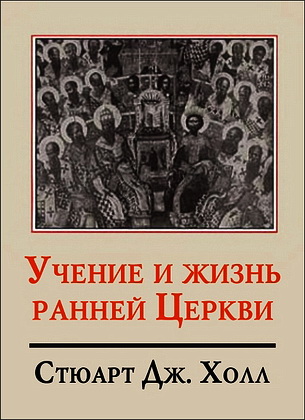
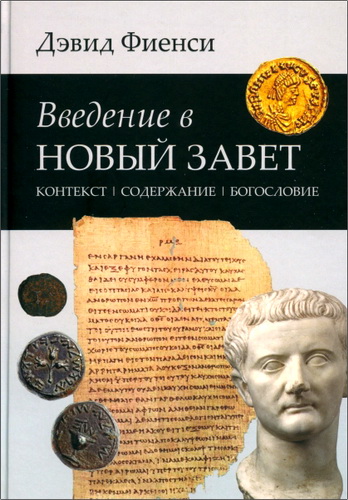
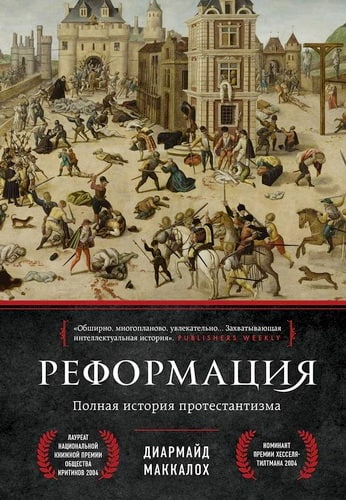
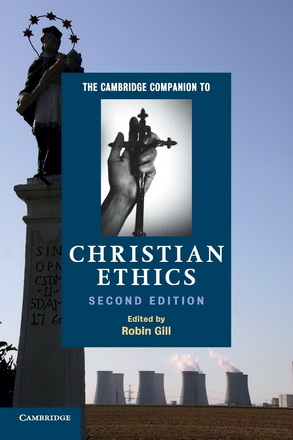
Комментарии
Пока нет комментариев. Будьте первым!